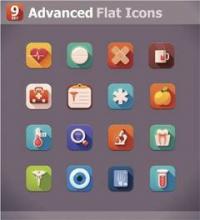The idea that smartphones, tablets, apps, and mobile technology might improve medical care certainly is appealing, but is there any evidence that these are useful clinical tools and not just glamorous new toys?
Welcome to our newest column – Evidence-Based Apps – in which we’ll track the growing field of mobile-device medicine for you and deliver the data that you need to decide whether an app might complement your clinical practice.
First, here’s the definition we’ll use: A medical app, or application, is software running on a phone, computer, some other electronic device, or the Internet that’s intended to improve health outcomes or act as a medical device. This may include products that you download to your phone or tablet, text-messaging interventions aimed at motivating patients, or small electronic devices and software that could replace larger, older, costlier medical technology.
Does that smartphone app for mental health decrease depression or anxiety? Can a smart skin patch replace Holter monitors? Will texts or other electronic reminders improve patient adherence to medication regimens? And will any of those ultimately improve patient health in the long term, increase convenience, or reduce medical costs? The developers of these devices would like you to think so, but here’s our mantra for this column: Show me the data!
A review of 1,500 health apps that cost between 69 cents and $999 found that 331 claimed to treat or cure medical problems, but all were disputed by medical experts, according to the New England Center for Investigative Reporting. Twelve of these apps relied on cell-phone light for "treatment," two said that the phone’s vibrations were therapeutic, and a whopping 43% claimed that cell-phone sounds were treatments.
Mobile health products (also called mHealth) are a booming field, and we’re now starting to see studies of apps that report clinical outcomes. The Food and Drug Administration regulates more than 100 apps that it sees as stand-ins for previously approved medical devices, and hospitals have put their own brands on more than 200 apps so far.
At least 9% of all U.S. adults have at least one health app on a smartphone, according to the Pew Research Center’s "Mobile Health 2012" report. Most popular are health apps to track and promote exercise, healthful diet, and weight loss.
In 2013, 95 million Americans accessed health information or tools through mobile phones, 27% more than in 2012, according to a report by Manhattan Research. Patients with the following diseases were most likely to be doing this, Manhattan Research said: cystic fibrosis, growth hormone deficiency, acne, ADD or ADHD, hepatitis C virus infection, migraine, Crohn’s disease, chronic kidney disease, generalized anxiety disorder, and bipolar disorder.
Makers of digital health products have lagged in conducting studies to verify the efficacy of these products, but it’s a problem that’s common to medicine, Forbes.com contributor David Shaywitz noted in a recent post. An estimated 40% of current medical practices aren’t backed by evidence from good clinical trials.
This column will offer reports on which of the more than 40,000 health and medical apps on the marketplace have some clinical trial evidence behind them. If there are any particular apps or topics you’d like us to cover, we’d love to hear from you!
On Twitter @sherryboschert


